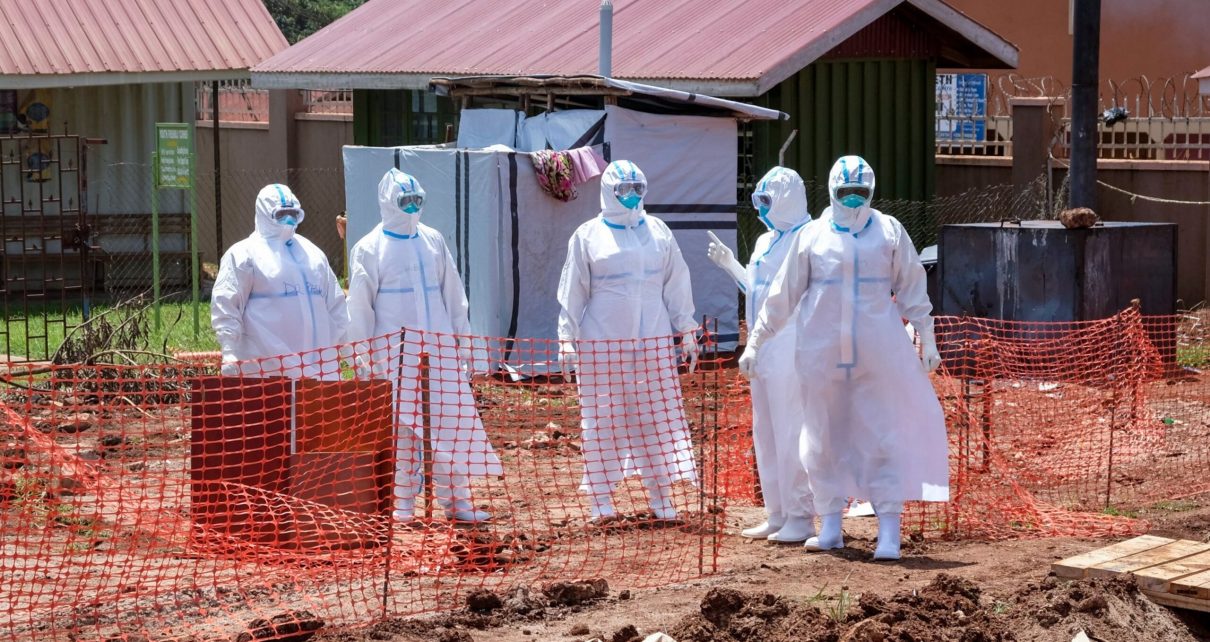The Nigeria Centre for Disease Control (NCDC) issued a warning to people on Monday against making unplanned trips to Uganda at this time.
In a statement he signed on Monday in Abuja, Dr. Ifedayo Adetifa, Director-General of the NCDC, issued the warning.
He explained that the warning is intended to give public health officials time to plan how to contain the Ebola outbreak.
As of October 29, 2022, the Ugandan Ministry of Health had confirmed 128 cases, of which 34 people had died.
Adetifa told people who were travelling to Uganda to stay away from people who looked sick or who were thought to have the Ebola virus.
He said that the Federal Ministry of Health’s Port Health Service is doing more screening at points of entry (POEs) for people coming from Uganda.
The NDCD boss said “travellers to Nigeria with recent travel history to Uganda or persons already in Nigeria but with recent travel history to or transit through Uganda within the past 21 days are to look out for symptoms.
“Symptoms such as fever, muscle pain, sore throat, diarrhoea, weakness, vomiting, stomach pain or unexplained bleeding or bruising should promptly call 6232 or state ministry of health hotlines for assessment and testing.
“Such persons should not visit health facilities by themselves to avoid further spread through the shared transport system (public or private).
“They would be visited at home by dedicated responders for assessment and transported through designated transport arrangement to designated treatment centre when required.
“Intending travellers to Nigeria with the above-stated symptoms before departure, should not travel to Nigeria, but call to report promptly to Port Health Authorities and/or designated health authorities in the country of departure for testing and care,” he said.
A recent history of travelling to or via Uganda with no symptoms on departure but being ill in route, he continued, should be prohibited contact with other persons.
Such individuals, according to Adetifa, must report to Port Health Service as soon as they arrive.
“Travellers with travel history to Uganda who show no symptoms on arrival should provide accurate information on the NITP platform to ensure follow-up from health workers.
“If any of the earlier-mentioned symptoms develop anytime within 21 days of arrival to Nigeria, please self-isolate immediately by staying indoors. Avoid contact with others, including immediate family.
“Call the NCDC 24/7 toll-free line immediately on 6232 or the emergency number of the state ministry of health.”
He claims that early supportive therapy commencement has been demonstrated to dramatically enhance outcomes, including a decrease in mortality.
Prior to the end of the 21-day follow-up period, the director general advised against local or international travel, stating that “to prevent the spread of Ebola, the public should adhere to necessary precautionary measures.
“Wash your hands frequently using soap and water or use hand sanitisers when soap and water are not readily available and your hand is not visibly soiled.
“Avoid physical contact with anyone who has symptoms of an infection with unknown diagnosis.
“Healthcare workers are advised to always adhere to standard precautions. This includes the use of Personal Protective Equipment always when handling patients, and always maintaining high index of suspicion.”



